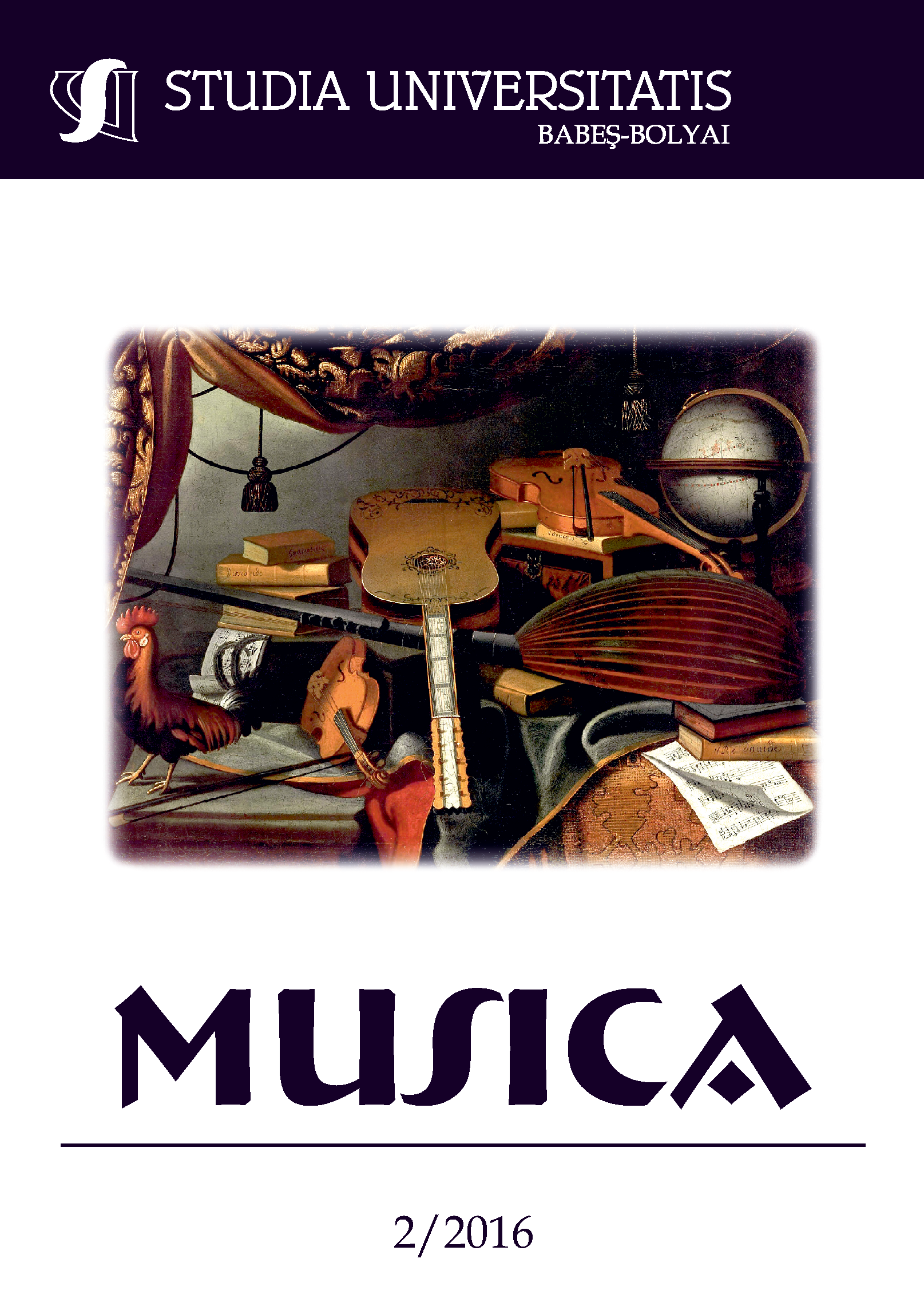ASPECTS OF MUSICAL LIFE DURING ADOLF HITLER’S DICTATORSHIP
Keywords:
music, censure, Hitler, Nazi, composers, ideology, resistance, persecutionAbstract
Aspects of Musical Life during Adolf Hitler’s Dictatorship – in the beginning of the 20th century the world witnessed the rise of some of the most prominent dictators and the development of some of the most destructive wars in history. One of the most illustrative examples of totalitarianism in the 20th century is the reign of Adolf Hitler, which had a significant impact on the musical life in Germany. In this research we present some of the most important aspects of the musical contexts during the Nazi regime and the attitudes of some of the most important composers of the time. The Nazi regime systematically purged all influences of Jewish and modern music, promoting only music that was ideologically accepted. To implement these decisions, the Nazi leaders decided to take control of the institutions that included music, from society’s core institution – the family – to music in churches and schools.
References
Arblaster, Anthony. Viva La Liberta! Politics in Opera, Ed. Verso, London. 1992.
Bălan, George. Cazul Schonberg (The Schonberg Case). Ed.Muzicală, Bucuresti, 1974.
Burkholder, J. Peter, Donald J. Grout and Claude V. Palisca. A History of Western Music, 7th Edition. Ed. W. W. Norton, New York, 2006.
Curjel, Hans. “Erinnerungen um Kurt Weill”. Melos 37 (1970).
Ellis, Donald W. Music in the Third Reich: National Socialist Aesthetic Theory as Government Policy. PhD Dissertation, University of Kansas, 1970.
Fürtwängler, William. „Der Fall Hindemith”. Deutche Allgemeine Zeitung. Berlin: Nov. 25th, 1934.
Goléa, Antoine. Muzica din noaptea timpurilor până în zorile noi (Music from the Night of Time to the New Dawn), Vol. II. Ed. Muzicală, Bucureşti, 1987.
Green, Robert. Dictators. Ed. Lucent Books, San Diego, CA 2000.
Kater, Michael H. Composers of the Nazi Era, Eight Portraits. Ed. Oxford University Press, New York, NY, 2000.
Kater, Michael H. The Twisted Muse. Ed. Oxford University Press, New York, NY 1997.
Krause, E., trans. J. Coombs. Richard Strauss. Ed. Collet’s, London, 1964.
Meyer, Michael. The Politics of Music in the Third Reich. Ed. Peter Lang, New York 1993.
Nicholas, Jeremy. The great composers. Ed. Quercus, London, 2007.
Painter, Karen. Symphonic Aspirations, German Music and Politics, 1900-1945. Ed. Harvard University Press, Boston, MA, 2007.
Potter, Pamela M. „Nazism”. Grove Music Online. Ed. Oxford University Press, January 2001. May 11th, 2010, 11:11.
Potter, Pamela M. „Strauss’s „Friedenstag”: A Pacifist Attempt at Political Resistance”. The Musical Quarterly, 69:3 (1983): 408-24.
Ross, Alex. The Rest is Noise. Ed. Farrar, Straus and Giroux, New York, NY, 2007.
Ross, Alex. “In Music, Thought, There Were No Victories”. Ed. New York Times, August 20th, 1995.
Steen, Michael. The Lives and Times of the Great Composers. Ed. Oxford University Press, New York, NY, 2004.
Toscanini, Arturo. http://www.goodreads.com. Accessed 24.01.12.
Downloads
Published
How to Cite
Issue
Section
License
Copyright (c) 2016 Studia Universitatis Babeș-Bolyai Musica

This work is licensed under a Creative Commons Attribution-NonCommercial-NoDerivatives 4.0 International License.






